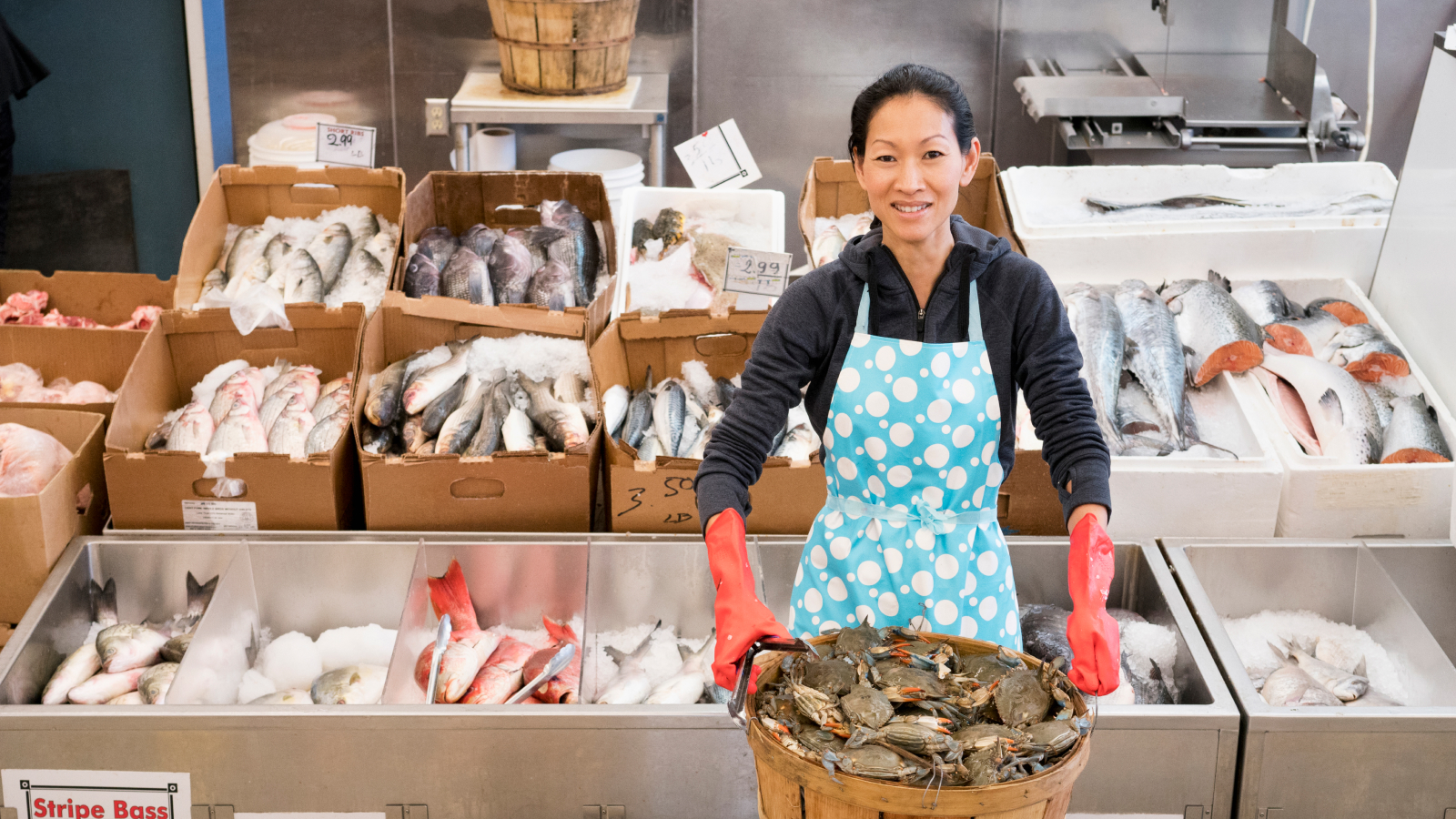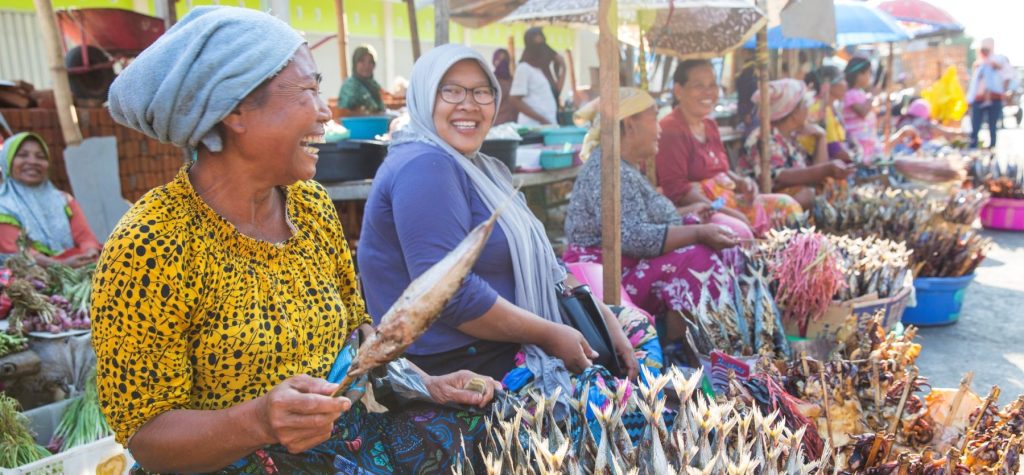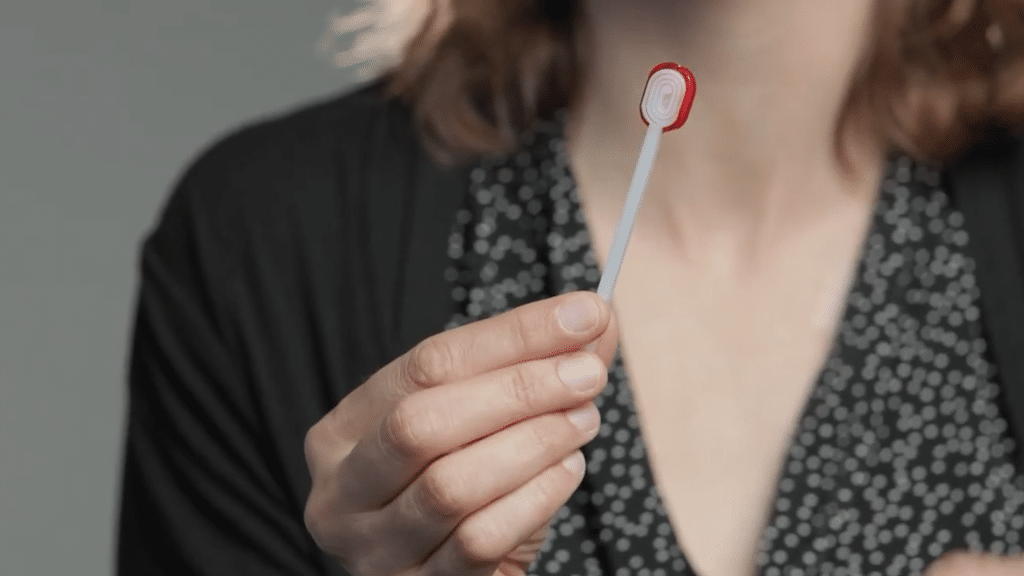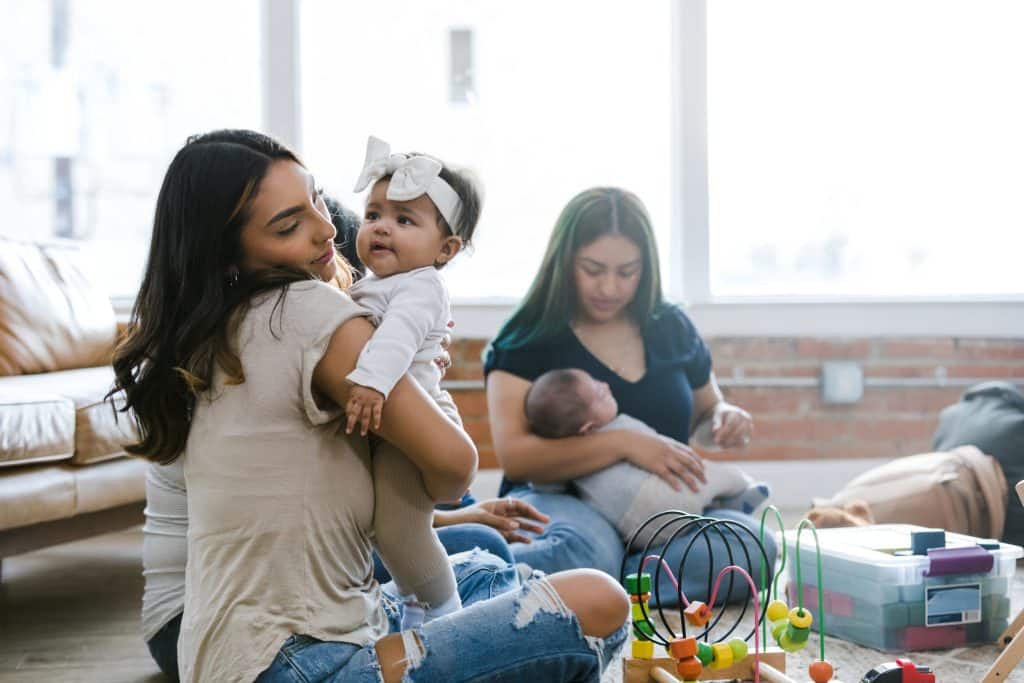Women and gender-diverse people play a critical role in the seafood industry – 50 percent of workers that bring seafood to global markets are women according to data from the Food and Agriculture Organization of the United Nations. Despite this, systemic inequities – including lack of legal protections, limited political representation, and underrepresentation in company leadership – persist. Across 80 of the top seafood companies, less than 15 percent of the corporate employees are women.
Women are not often included in discussions about improving the environmental sustainability and social responsibility of global seafood. It’s essential to address the lack of women’s voices in decision making around these precious resources, especially in the face of looming challenges like the global climate crisis – we must ensure that women’s skills and knowledge are brought to the forefront of those discussions.
While gender inequity is affecting the entire seafood sector, there are also reasons to be hopeful – including efforts to address these challenges throughout the sector. Progress is being made in three key parts of the supply chain:
Production and Processing
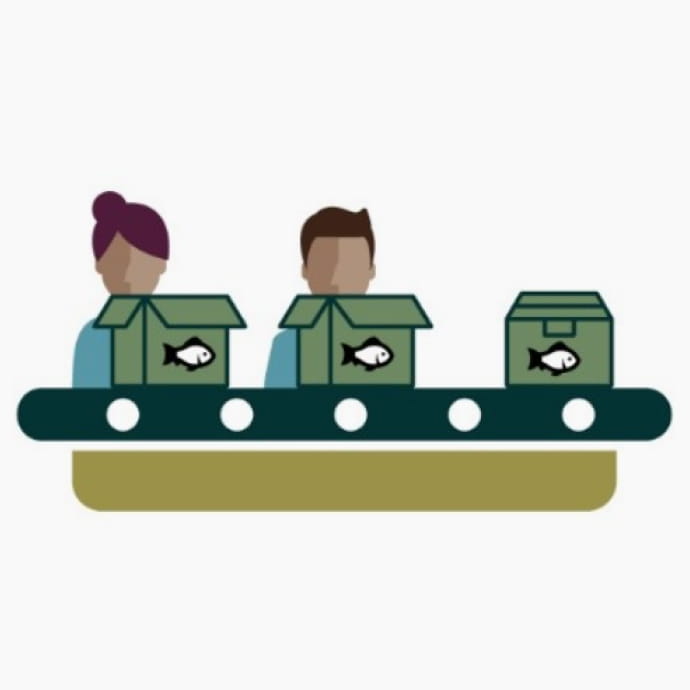 There are unique challenges for women that work in seafood production, including fishing and fish farming, and processing, including tasks like cleaning, filleting, and packaging product. While women are a significant part of the workforce in many of the processes that underpin seafood production, they frequently encounter harassment, discrimination, occupational health and safety risks, and long hours and low wages. Women in these roles are often excluded from discussions and decisions around management of local natural resources and other challenges – including access to education, high-paying jobs, and financing – which only amplifies the issue.
There are unique challenges for women that work in seafood production, including fishing and fish farming, and processing, including tasks like cleaning, filleting, and packaging product. While women are a significant part of the workforce in many of the processes that underpin seafood production, they frequently encounter harassment, discrimination, occupational health and safety risks, and long hours and low wages. Women in these roles are often excluded from discussions and decisions around management of local natural resources and other challenges – including access to education, high-paying jobs, and financing – which only amplifies the issue.
Despite these challenges, there has been progress in addressing gender inequity in seafood production and processing. For example, the aquaculture company Regal Springs’ WE CARE Integrated Sustainability Program aims to meet community needs by supporting local schools and medical clinics and address some of the barriers women face such as improving literacy rates and ensuring access to preventative medical care and vaccinations.
“Investing in local communities may seem risky, but this misunderstands the impact of the investment. Risk is reduced by increasing people’s skills and capabilities, which underpins the company’s ability to remain competitive and generates revenue to pay the employees. If you don’t invest in employees’ skills development and wellbeing, companies can expect to fall behind. It takes a lot of attention to do this, but programs like Regal Springs’ WE CARE Program serve as a core value and delivery program and the benefits of the program are now mutually recognized by both the company and employees.” – Peter Hajipieris, independent sustainability advisor and former Chief Corporate Affairs & Sustainability Officer of Regal Springs
Other organizations are working in collaboration to connect stakeholders and build capacity, better positioning women to move into management and decision-making roles. One example is Community and Biodiversity, AC’s (COBI) Gender Equality at Sea program, which promotes the equal participation of women in marine fisheries. With the support of the Packard Foundation, COBI has established the Gender Equality at Sea Learning Pilot to support women in Latin America and the Caribbean to build a national dialogue to incorporate integrate gender approaches in fishing initiatives and create a multistakeholder network to connect and share knowledge.
“Gender equality is key for sustainable development – and it is a human right. If we want to achieve healthy oceans and resilient fishing communities, we must take joint action. It is the responsibility of all people – women and men – to work together to achieve gender equality.” – Neyra Solano, Gender Equality Specialist at COBI
Distribution
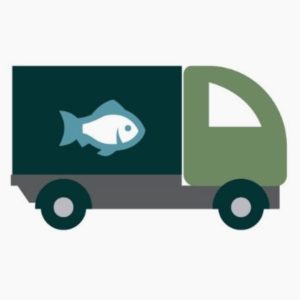 While the lack of women in senior leadership roles is an issue throughout the seafood sector, it is particularly noticeable among companies in the middle of the supply chain that buy and sell seafood. Of the 100 largest seafood companies, only 4 percent have female CEOs. This means that women’s diverse perspectives are not fully accounted for in management and strategic decisions.
While the lack of women in senior leadership roles is an issue throughout the seafood sector, it is particularly noticeable among companies in the middle of the supply chain that buy and sell seafood. Of the 100 largest seafood companies, only 4 percent have female CEOs. This means that women’s diverse perspectives are not fully accounted for in management and strategic decisions.
Fortunately, there are emerging efforts to elevate the profile of women leaders and engage mid-supply chain companies in discussions about increasing representation in their leadership teams. The Seafood and Gender Equality (SAGE)’s podcast, The Conch, features interviews with women working in the seafood industry to amplify their insights and showcase how women play a critical role in the sector.
In addition, Sea Pact, a collaboration of North American seafood companies, is partnering with SAGE to establish a dialogue on gender to bring together North American companies to discuss the challenges that the industry is facing around gender equality and ways the industry can increase the gender diversity of future industry leaders.
“The seafood industry would benefit with more women in leadership and decision-making roles. Sea Pact wants to be involved in issues leading to transformational change and helping to establish a dialogue on gender equality in seafood is one clear way we can help strengthen the industry.” – Sam Grimley, Executive Director at Sea Pact
Consumer Sales
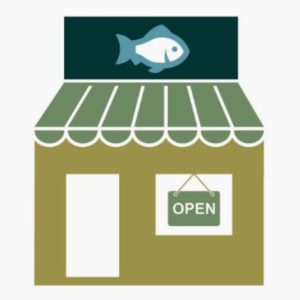 Among retail and foodservice companies that sell seafood to consumers, a significant challenge is the failure to ensure protections for women throughout the supply chain. Oxfam’s annual Global Supermarket Scorecard, which assesses the human rights actions of 16 leading supermarkets, found that most are failing to establish effective measures to protect the rights of women workers and address barriers to equality. Of the 16 companies, 10 had no policies at all addressing women’s equality in their supply chains.
Among retail and foodservice companies that sell seafood to consumers, a significant challenge is the failure to ensure protections for women throughout the supply chain. Oxfam’s annual Global Supermarket Scorecard, which assesses the human rights actions of 16 leading supermarkets, found that most are failing to establish effective measures to protect the rights of women workers and address barriers to equality. Of the 16 companies, 10 had no policies at all addressing women’s equality in their supply chains.
However, that norm is starting to shift. Retailers and foodservice companies are starting to ask questions about social issues, including gender inequity, throughout their supply chains and consider how the products on their shelves can support improvements.
“As the seafood industry has embraced sustainability and is looking toward making strides in human rights, more women are attracted to the industry and want to be part of solving those problems. A continued focus on breaking down gender barriers for all people in the industry will help create more opportunity for women to have leadership positions.” – Maisie Ganzler, Chief Strategy and Brand Officer at Bon Appétit Management Company
Creating a More Equitable Future for Women and Gender-Diverse People in Seafood
While the seafood industry faces persistent challenges around gender inequity, there is growing momentum to address these challenges – including raising awareness of the problems and efforts to improve gender equity at all levels of the seafood supply chain. Continued industry and philanthropic investments will be critical to ensuring these efforts yield results for the 100 million women working in seafood and for the billions of people who rely on our ocean resources for food and livelihoods.
This hard work has happened before. The industry came together 25 years ago to use its leverage to address environmental sustainability. If we work together to understand these issues, we can collectively identify solutions that are viable and meaningful.
Julie Kuchepatov is the founder of Seafood and Gender Equality (SAGE). SAGE focuses on building women’s power and influence in the seafood sector to ensure gender equality in global seafood production.
